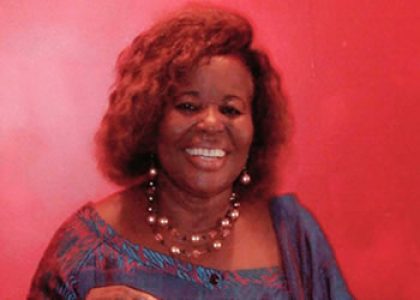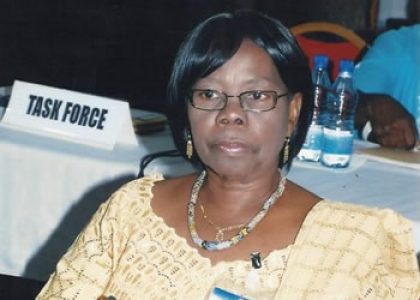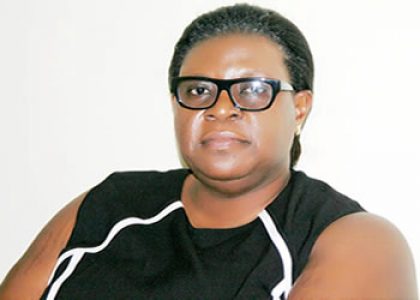About Us
Historical
Evolution
Inadequate access to formal credit has been identified as a major obstacle to women’s economic empowerment. It is in this context that the Economic Commission for Africa (ECA) Conference of Ministers in 1990 adopted Resolution 736 (DCCXXXVI) on “women and their access to resources in the 1990s” and initiated moves towards the establishment of an African Bank for Women.
Pursuant to this resolution, the ECA African Centre for Women (ACW) organized an ad hoc expert group meeting in Kampala, Uganda, in 1994 to devise a financial institution which would cater for specific financial needs of African women at all levels, define the most appropriate mode of operation, and recommend measures which would ensure its viability and sustainability as well as mobilization of financial resources.
The meeting, which was chaired by Nana Oye Mansa Yeboaa, the then first Deputy Governor of the Bank of Ghana, recommended among others, the establishment of a privately owned regional financial (apex) institution to be known as "Afrika Women Bank (AWB)" with affiliates at national level and with women holding the highest percentage of shares.
In line with the above, Nana Oye Mansa Yeboaa on her return to Ghana from the expert meeting spearheaded moves to establish the national affiliate of the proposed Bank. It was further recommended that a soft loan window of AWB to be known as Ghana Women Fund should also be established.
Through the National Council on Women & Development (NCWD), and with support from the Government of Ghana and Bank of Ghana, detailed Feasibility Studies and other preparations towards the establishment of the Bank were undertaken, including the Registration and Incorporation of the Afrika Women Bank (Ghana) Limited as a Limited Liability Company in 1997, pending the application for and issuance of a Banking License by the Bank of Ghana.
The NCWD, Ghana Association of Women Entrepreneurs (GAWE) and the local chapter of the International Federation of Women Lawyers (FIDA Ghana) were made the key promoters for and on behalf of all Ghanaian Women and also the initial subscribers of the Company’s Shares.
The Government of Ghana in line with its commitment to women empowerment also approved a loan of GH¢100,000 (~US$436,809.84) in 1997 to support the setting up of the Bank. Following a request by AWB (in- formation), the Government of Ghana in 2001 agreed to have the loan converted to equity.
While efforts were still ongoing to raise more funds through sale of shares to acquire a Banking License to operationalize AWB Ghana Ltd. (in-formation), the Ghana Women Fund Limited was incorporated in June 2001 as the soft loan window of AWB Ghana Ltd. (in-formation). The NCWD, GAWE and FIDA, acted on behalf of all Ghanaian women as the promoters.
The key function of the Fund as outlined by the Shareholders was to wholesale credit to women’s organizations and micro-credit institutions for on-lending to women at the grassroots with the ultimate goal of nurturing micro enterprises operated by women into medium and relatively large scale enterprises which can access credit on commercial terms from any Bank.
Following the inability of the AWB Ghana Ltd. (in-formation) to raise the increased minimum required capital for a Banking License, a Resolution was passed at the Company’s Annual General Meeting in August 2002 that the GWF should be used as the vehicle to implement the programs of AWB (in-formation). Consequently the process of operationalizing AWB in Ghana was halted and its assets transferred to Ghana Women Fund.
Our Background
Women have a key role to play in national development. However, their integration into the formal sector is constrained by limited access to credit and technical skills despite efforts made by governments and development agencies (UNDP Report).
The UNECA Council of Ministers, at their experts meeting held in Kampala, Uganda (1994), adopted Resolution 736 in a bid to address this major constraint faced by women in their socio-economic advancement and empowerment.
They encouraged the creation of a financial institution which would cater for specific financial needs of African women at all levels. In line with the above initiative, in February 1996, interested individuals and women's organizations in Ghana, with the support from Ghana Government, endeavoured to set up Afrika Women Bank Ghana Limited.
Ghana Women Fund was to be the soft window (developmental subsidiary) of the Bank. Due to issues of capitalization and other causes, efforts to establish the Bank was discontinued. However the objectives were kept in focus and were to be realized using Ghana Women Fund as the vehicle for implementation. With this background, Ghana Women Fund was registered with the Registrar General’s Department to commence business on June 12, 2001:
- To support the income generating efforts of poor women, particularly those in the rural and slum areas of urban centers by extending credit to them.
- To provide training in book – keeping and business management as well as information material on business, finance and economics to Ghanaian women entrepreneurs.
- To provide services in fund management, banking, non-bank financial and forex bureau services.
In August 2002, at the Annual General Meeting of Afrika Women Bank, it was resolved that Ghana Women Fund be used as the vehicle to implement the relevant programmes of the intended Bank. The effective date of change from Afrika Women Bank to Ghana Women Fund was October 2003. In January 2006 GWF started engaging Rural Banks as intermediaries through which the Fund channels credit for on-lending to women.
Ghana Women Fund is partly owned by the Government of Ghana and individual shareholders with Directors representing different Institutions on its Board, who are actively engaged in setting guidelines for operating and managing the Fund effectively to make credit more accessible to Ghanaian women entrepreneurs.
Our Mission Statement
To economically empower Ghanaian women, improve on their quality of life and thereby enable them to contribute more effectively to national economic growth and development, by actively promoting and enhancing women’s access to credit and other financial services, utilizing the most cost-effective and sustainable systems, procedures and processes.
Our Vission
To lead the development of gender-focused financial services in Ghana, and become one of the most reliable, profitable and sustainable specialist financial services providers.
Our Principles
GWF is committed to maintaining the highest standards of excellence, integrity and professional ethics at all times. GWF will always strive to provide outstanding service to all, utilizing a dedicated and expert work force and an organization that is well equipped to serve the public and achieve its mission.
Our Core Values
- Customer Focus
Dedicated to excellent customer service and offer our best effort every time. - Effective Communication
Communicate openly, honestly, and respectfully with each other and with our clients
- Accountability
Take responsibility for our conduct and work and act with integrity. - Teamwork
Create collaborative partnerships to accomplish our mission and vision.
- Excellence
Strive to be the best, continuously improve, innovate and adapt. - Integrity
Aspire to the highest ethical standards of honesty, trustworthiness and dependability.
- Service
Work for the benefit of society in general and Ghanaian women in particular.
Board Of Directors
The Board of Directors is made up of representatives of individual shareholders, women’s groups and the Government of Ghana. The Directors have been actively engaged in setting guidelines for operating and managing Ghana Women Fund effectively to make credit more accessible to Ghanaian Women Entrepreneurs.
The Board also functions in an Executive Capacity with individual Directors having specific Executive responsibilities assigned to them. The current Directors with their respective roles are as follows:
Useful Links
Contact Details
Office Location
832 Eduardo Modhlana Awudome Estates
Kaneshie Awudome Estate
Close to Kaneshie
Postal Address
P. O. Box CT 1944
Cantonments, Accra
Tel: +233-(0)30 222 70 05
Tel: +233-(0)30 290 91 43
Time: 8:00 AM – 5:00 PM
Email: ghwomenfund@yahoo.com
Email: ghwomenfund@gmail.com
Email: info@ghwomenfund.com



